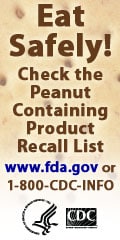Most people don’t die from asthma, but there is concern for African Americans because asthma is more likely to cause death. The reason for this disparity is not known. But there are asthma control techniques to help people manage their condition successfully. The Centers for Disease Control and Prevention (CDC) offers this important advice to everyone with asthma – have an asthma action plan and exercise it. The CDC has a variety of information that patients and health-care providers can use to control asthma.
What is asthma?
Asthma, a disease that affects your lungs, is the most common long-term disease of children, but it also affects adults. Each day, 30,000 people have an asthma attack, 1,000 are admitted to the hospital, and 11 people die. Asthma causes repeated episodes of wheezing, breathlessness, chest tightness, and early morning or nighttime coughing.
What is an asthma attack?
An asthma attack happens in your body’s airways, which are the paths that carry air to your lungs. During an asthma attack, the sides of the airways in your lungs swell, and the airways shrink. The attack may include coughing, chest tightness, wheezing, and trouble breathing.
How is asthma diagnosed?
Asthma can be hard to diagnose, but regular physical checkups that include checking lung function and allergies can help your health-care provider make the right diagnosis. During a checkup, your health-care provider will ask whether you cough a lot, especially at night, and whether your breathing problems are worse after physical activity or during a particular time of year. Health-care providers will also ask about other symptoms such as chest tightness, wheezing, and colds that last more than 10 days and if anyone in your family has or has had asthma or other breathing problems.
How is asthma treated?
Your health-care provider will help you make an asthma action plan and stick to it. He or she may recommend a combination of medication, environmental changes and behavior modification. Not everyone with asthma has the same needs, and your needs may change as you get older, so it’s important to get regular check-ups.
What triggers asthma attacks?
It’s important to learn what triggers your asthma attacks so you can avoid the triggers whenever possible and be alert for a possible attack when the triggers cannot be avoided. Below are some of the common triggers:
- Environmental tobacco smoke
- Parents, friends, and relatives of children with asthma should try to stop smoking and avoid smoking near a person with asthma or in their house or car.
- Dust mites are in almost everybody’s home, but they don’t cause everybody to have asthma attacks. Use mattress covers and pillow case covers, avoid down-filled pillows, quilts, or comforters and remove stuffed animals and clutter from your bedroom. Clean blinds and curtains on a regular basis.
- Air pollution: Pay attention to air quality forecasts on radio and television and plan your activities when air pollution levels are lowest.
- Mold: Get rid of mold in all parts of your home. Keep the humidity level in your home between 35 and 50 percent. In hot, humid climates, you may need to use an air conditioner or a dehumidifier or both. Fix water leaks, which allow mold to grow behind walls and under floors.
Strenuous physical exercise; strong emotional states some medicines; bad weather such as thunderstorms, high humidity, or freezing temperatures; and some foods and food additives can trigger an asthma attack. Allergens such as pet dander, pollen, mold or cockroaches may also trigger attacks.
For More Information:
Call 1-800-CDC-INFO (1-800-232-4636) or visit http://www.cdc.gov/asthma.
------
Reproduced with the kind permission of the Centers for Disease Control and Prevention





